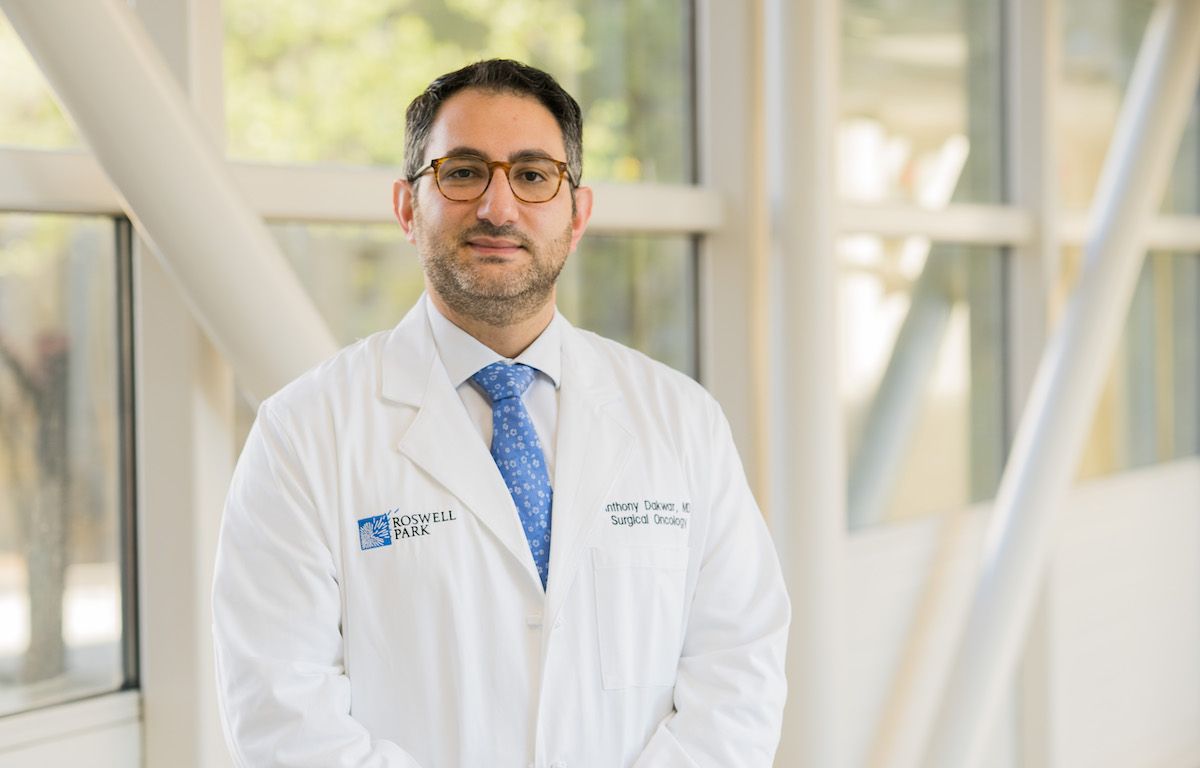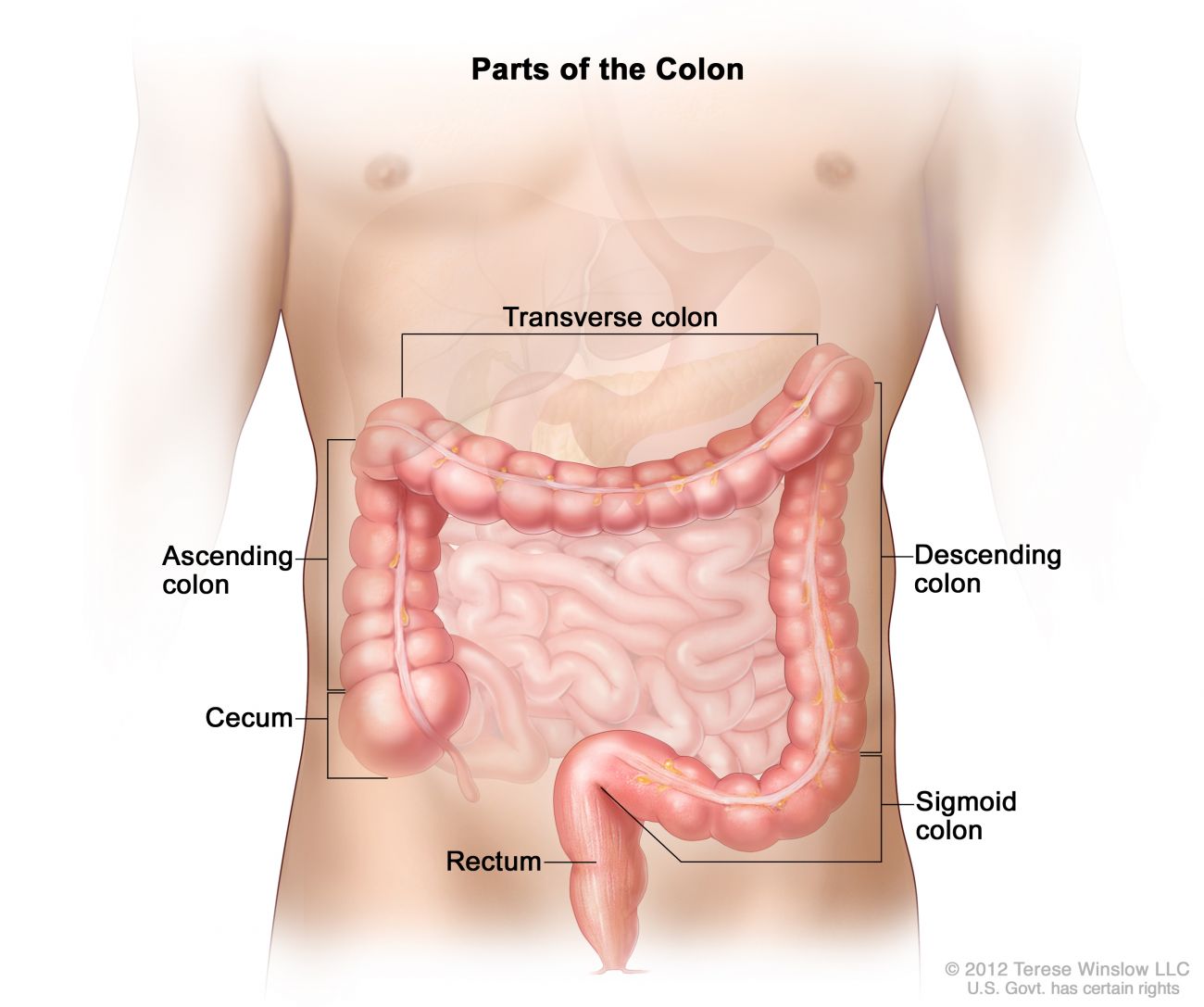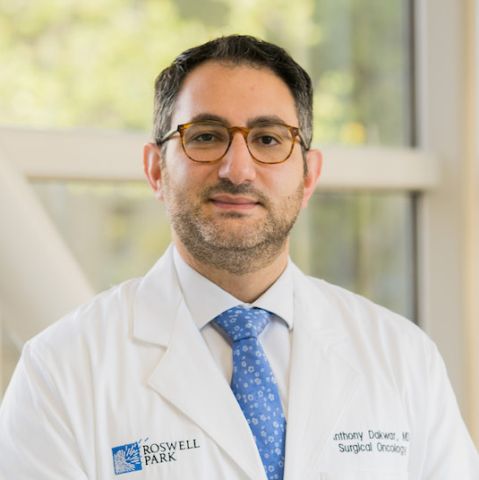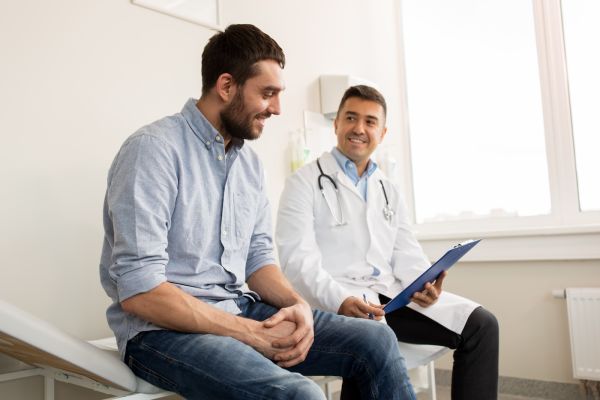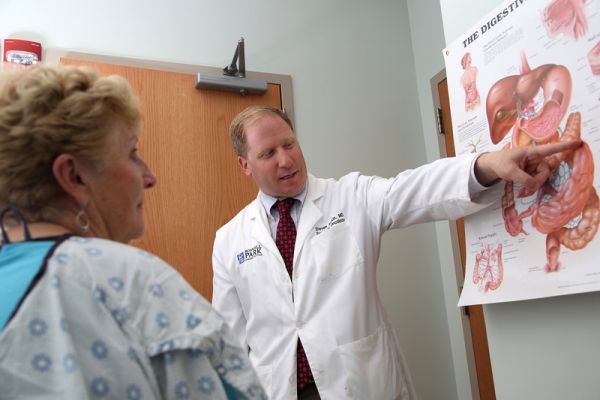Roswell Park's new colon and rectal surgeon, Anthony Dakwar, MD, explains the differences between colon cancers that arise in the right side of the colon compared to those in the left side.
Yes, it does. Several differences can be seen in the colon cancers that begin on the left side, in the descending and sigmoid parts of the colon, compared to those that occur on the right side, in the ascending and cecum portions of the colon, explains Roswell Park Comprehensive Cancer Center’s new colon and rectal surgeon Anthony Dakwar, MD. (Cancers can also develop in the middle, transverse section of the colon, although less commonly.)
The differences between left-sided and right-sided colon cancers include why and how the cancer developed, whether it produces noticeable symptoms, and the cancer’s aggressiveness and how well it responds to usual chemotherapy regimens. “While polyps can occur anywhere in the entire colon, their incidence and their predisposition to turn into cancer can differ depending on where in the colon they arise,” says Dr. Dakwar
Left-sided colon cancers are often ordinary
The cancers that develop on the colon’s left side are more likely to be unremarkable, garden-variety colorectal cancers. These tend to develop in a traditional pathway, Dr. Dakwar explains. “Simple colon polyps, abnormal growths of tissue, experience a sporadic chromosomal change in their cells that, in time, can convert into a cancerous tumor. This process is slow and can take several years, which is why screening with colonoscopy can be performed at several-year intervals.”
Right-sided colon cancers are more unusual
Polyps that develop in the right side of the colon are more likely to occur in people with a genetic predisposition for developing cancer, such as Lynch Syndrome and microsatellite instability. Right-sided polyps are more likely to develop into cancers — which often grow rapidly and have a higher risk for metastasis, spreading to distant body areas.
Right-sided colon cancers also tend to develop from flat polyps rather than the usual mushroom-shaped ones, and are genetically atypical, too. “Differences in the genetic makeup of these tumors often means these cancers are more aggressive and can be resistant to current chemotherapy treatment regimens,” he says.
Both types need multidisciplinary care
The location of your cancer is just one aspect of it that’s contemplated in developing your treatment plan. “For both left- and right-sided colon cancers, unless they are metastatic, upfront surgery is the typical first-line treatment,” says Dr. Dakwar. “However, the key to having successful treatment is a multidisciplinary approach with regards to obtaining personalized and individualized cancer care.” At Roswell Park, your care team will include physicians from various medical disciplines — surgical, medical and radiation oncologists, plus gastroenterologists and pathologists — each bringing their respective expertise to the table.
“Our team ensures that every patient gets evaluated systematically and receives a customized treatment plan. We are able to get patients on cutting-edge clinical trials in order to enhance their treatment plan and provide opportunity for being cancer-free.”
Don’t wait for symptoms — get your screening!
Screening tests look for signs of cancer before it progresses to the point where symptoms may arise. Abdominal symptoms such as pain, bloating or rectal bleeding are often signs of an abnormal process in the left side of your colon. “Right-sided colon cancers tend to be asymptomatic or cause these symptoms only when they are at an advanced stage and fairly large. Right-sided cancers are more likely to be diagnosed at a later stage and this alone makes for a poorer prognosis,” Dr. Dakwar says.
The good news is that screening with colonoscopy can detect polyps and early cancers anywhere in the colon. Getting a colonoscopy screening on time, according to the recommended guidelines, can find and treat precancerous polyps and prevent cancer from forming. “There is no other screening test that can substitute for a colonoscopy,” says Dr. Dakwar.
What is “on time” for your colonoscopy? Most people at average risk should begin regular colon and rectal screening at age 45. But several factors mean you should begin sooner, such as being African American or having a family history of gastrointestinal cancer. Talk to your healthcare provider to learn when you need to schedule your screening.
